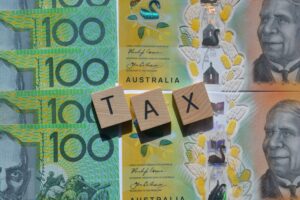Here are 5 companies that use an October to September financial year, and are reporting FY24 results soon
![]() Nick Sundich, October 16, 2024
Nick Sundich, October 16, 2024
If you thought reporting season was done and dusted for all companies, you’d be wrong – because some companies use an October to September financial year. And these companies will be reporting in the next few weeks. Most use a July to June financial year, but can use whatever 12 month period they like as long as they meet the reporting deadlines – particularly the 2 month deadline post the end of financial year that results are due. Here are a few companies to watch out for.
5 companies that use an October to September financial year, and are reporting FY24 results soon
NAB (ASX:NAB)
NAB’s glory days of 2020-21 are behind it. Its departing CEO Ross McEwan declared that his company’s $7.7bn profit would not be repeated. These had been boosted temporarily by the RBA’s rate hikes. The bank’s 1HY24 results showed the bank’s margins were being eroded by competition with its profit down to $3.5bn (down 13%), and its ROE fell from 13.7% to 11.7%.
Crucially, however, this was in line with consensus estimates and so investors have been forgiving in the sense that the share price was not punished – it has gained 30% in the last year. That being said, it trails CBA and Westpac and only trumps ANZ so far as a 12 month share price performance is concerned. NAB is reporting results on November 7.
Westpac (ASX:WBC)
Westpac also uses an October to September financial year. Like NAB, investors and analysts have a good idea of what to expect and should not react significantly unless there was a great divergence between July and September and the 9 months prior. It told investors it made a $1.8bn unaudited profit for the prior quarter. Similar to NAB, intense competition and cost of living pressures on customers are being felt. Pencil in November 4 for the release date.
Elders (ASX:ELD)
Let’s move on to a sector that is not doing so well – agriculture. Elders has had a volatile 12 months like all companies. As an agriculture company, Elders is highly vulnerable to weather conditions and commodity prices. Its most recent results were the worst in the past decade as its profits fell 76% – all due to El Nino.
Add into the mix is CEO Mark Allison resigning after 10 years, causing shares to fall over 20% in a day, only to backflip on his decision because a superior candidate could not be found. He became CEO having already been on the board as chairman and overseeing a CEO hiring process…only for the process to end with him being hired. Consensus estimates expect revenues to decrease by 9%, but its profit to fall by over 30%.
Select Harvests (ASX:SHV)
Moving on from an agriculture all-rounder to a specialist here…Select Harvests is Australia’s preeminent almond seller. Select Harvests is enduring difficult times too, but its 1HY24 results were not as bad as the year before. After all, it made positive EBITDA of $18.7m and a $2.1m NPAT loss versus a $117.1m EBITDA loss and $96.2m NPAT loss in 1HY24. And consensus estimates call for a 22% jump in revenue and the company returning to profitability.
Nonetheless, almond prices remain below the cost of production and have since the 2020-21 season. It was less than a month ago that the company undertook an $80m capital raising and told investors it had identified cost reduction initiatives to to implement.
Gentrack (ASX:GTK)
Here’s a company you may not have expected to find on this list. Gentrack is a provider of essential software and services to utilities and infrastructure providers. In 1HY24, it delivered a 21% increase in revenues and recorded $12.3m EBITDA, which was in line with guidance. For the full year it is expecting ~$200m in revenue and $23.5-26.5m EBITDA, up 12-13%. Unfortunately, the institutional investors think this growth is already priced in and have been selling.
What are the Best ASX Stocks to invest in right now?
Check our buy/sell tips
Blog Categories
Get Our Top 5 ASX Stocks for FY25
Recent Posts
The $3m super tax is coming! If you’re invested in equities, here is how it might impact you
It seems during the next 3 years, the $3m super tax will be officially a thing. Itwas blocked by the…
Northern Star Resources (ASX:NST): The $28bn gold miner that stands above them all
Northern Star Resources (ASX:NST) is by far the largest gold company on the ASX, capped at $28bn as of May…
6 ASX stocks you forgot were listed
Here are 6 ASX stocks you forgot were listed Brisbane Broncos (ASX:BBL) No it is not a mistake. This…



